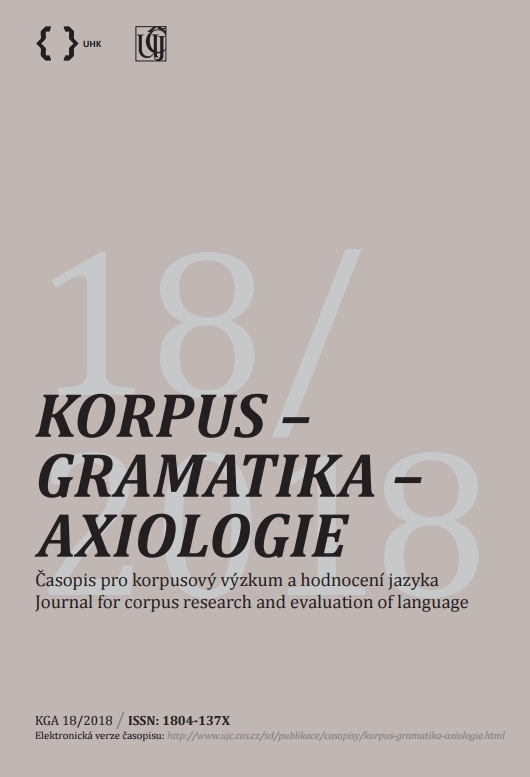The reflexive verbal form and the infinitive in Czech
The reflexive verbal form and the infinitive in Czech
Author(s): Aleš PůdaSubject(s): Language and Literature Studies, Theoretical Linguistics, Morphology
Published by: AV ČR - Akademie věd České republiky - Ústav pro jazyk český
Keywords: (coordination of) embedded (reflexive) infinitives; causative reflexive; decausative reflexive; (long) object movement; passive infinitive, reflexive deagentive; reflexive dispositional construction
Summary/Abstract: This article investigates, in the first instance, the mechanisms of Czech reflexive infinitives derived from the reflexive verbal form. Using the CNK, their rudiments are shown to be found in familiar conditional or optative clauses (cf. Jezdit se olympiáda častěji, nepřežil bych. ‘Driving the Olympia more often, I’d not survive.’) as well as in hitherto unexamined embedded coordinations (cf. Pivo mohlo kvasit, zrát a transportovat se do hospody. ‘The beer could ferment, ripen and be transported to the pub.’). Yet simple embedded infinitive phrases can already serve as an environment for a potential reflexive infinitive. Previous scholarship has been divided with respect to the origin of morphological reflexivization: a matrix RVF versus an embedded RVF with associated clitic-climbing into canonical second position. We have, thus, examined nine auxiliary environments and concluded that five of these clearly point to formal reflexivization on the matrix verb, while the rest at least do not conflict with this interpretation. Restructuring of an infinitive phrase is, contra the scholarly literature, by no means an obligatory operation following a firm principle and conditioned only by the nature of the matrix verb. Rather, it is also progressively conditioned by further factors such as the nature of the (first) embedded infinitive (e.g. a semi-restructuring verb, a reflexive verb with SI, a passive or retroactive infinitive), word order, the language variant, the agreement of the matrix verb and the morphological case marking of the object. Consequently, restructuring of an infinitive phrase can, on the one hand, fail to occur entirely or, on the other, be manifested either in only partial, full, or even overly specified form.
Journal: Korpus - gramatika - axiologie
- Issue Year: 2018
- Issue No: 18
- Page Range: 35-62
- Page Count: 28
- Language: English

